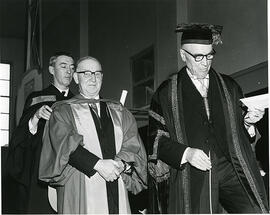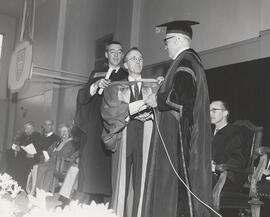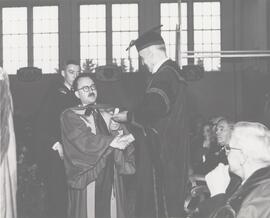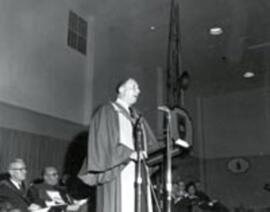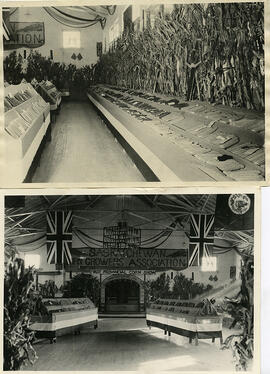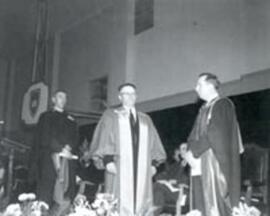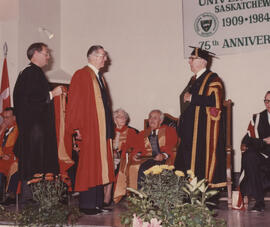Individual photographs of School of Agriculture graduates grouped. with Dean W.J. White and Honorary President Dr. E.S. Humbert at centre. Names: Adnam, D.D.; Adolphe, D.F.; Akister, M.H.; Alexander, G.G.; Babcock, J.H.; Babcock, J.W.; Baglole, K.W.; Bamford, J.A.; Bashforth, G.P.; Bassendowski, K.A.; Bui, K.N.; Burrell, W.C.; Buswell, J.C.; Caderma, E.T.; Chabot, G.M.; Cortus, G.H.; Coutts, G.W.; Daku, A.B.; Darroch, D.W.; Ehman, D.B.; Elliot, W.H.; Entwistle, L.J.; Erickson, J.D.; Frydenlund, K.J.; Ganshorn, A.W.; Ganz, H.F.; Geddes, D.W.; Hart, R.A.; Henryk, J.K.; Hepburn, D.G.; Herman, G.A.; Howes, G.B.; Howes, K.W.; Hryhor, D.P.; Hudek, E.J.; Hultgreen, G.E.; Jackson, C.L.; Jamison, L.B.; Johnson, C.L.; Kiehn, F.A.; Knash, L.E.; Kramer, D.E.; Laforge, C.M.; Laing, W.L.; Larson, B.G.; Lidster, D.G.; McCarthy, B.J.; McElroy, E.J.; McLean, B.C.; MacPherson, D.G.; Machin, M.L.; Mathieson, T.J.; Mutlow, W.B.; Nagy, J.G.; Norheim, H.L.; Olsen, H.D.; Paul, G.H.; Perrault, D.C.; Reeve, W.L.; Reynolds, C.C.; Robertson, G.R.; Rusk, R.J.; Saelhof, D.G; Sim, D.W.; Sladen, N.A.; Steele, D.B. Stushnoff, B.G.; Swanson, B.L.; Tanner, E.W.; Tedford, H.D.; Thompson, D.J.; Thompson, L.A.; Toews, J.A.; Wagner, R.H.; Ward, B.L.; Warnock, D.J.; Weaver, G.H.; White, R.A.; White, W.D.; Whitley, G.F.; Williamson, J.G.; Wilson, K.M.; Zenter, R.P.; Zepp, J.E.

